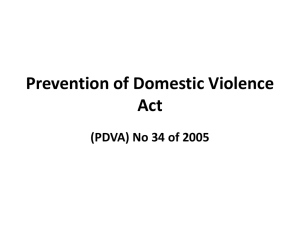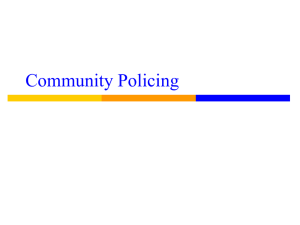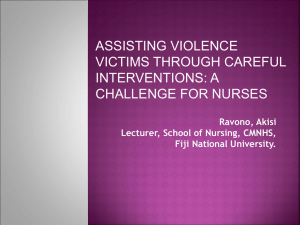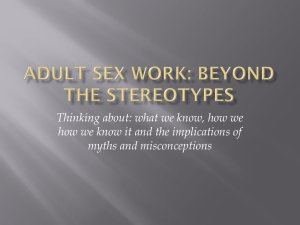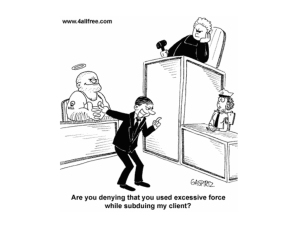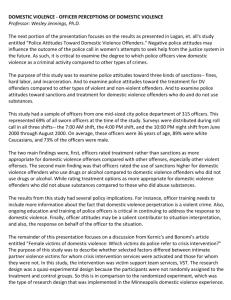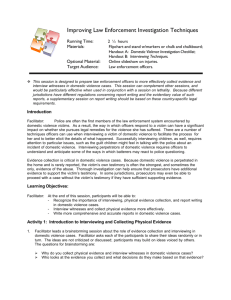So, are specialized law enforcement domestic violence units
advertisement
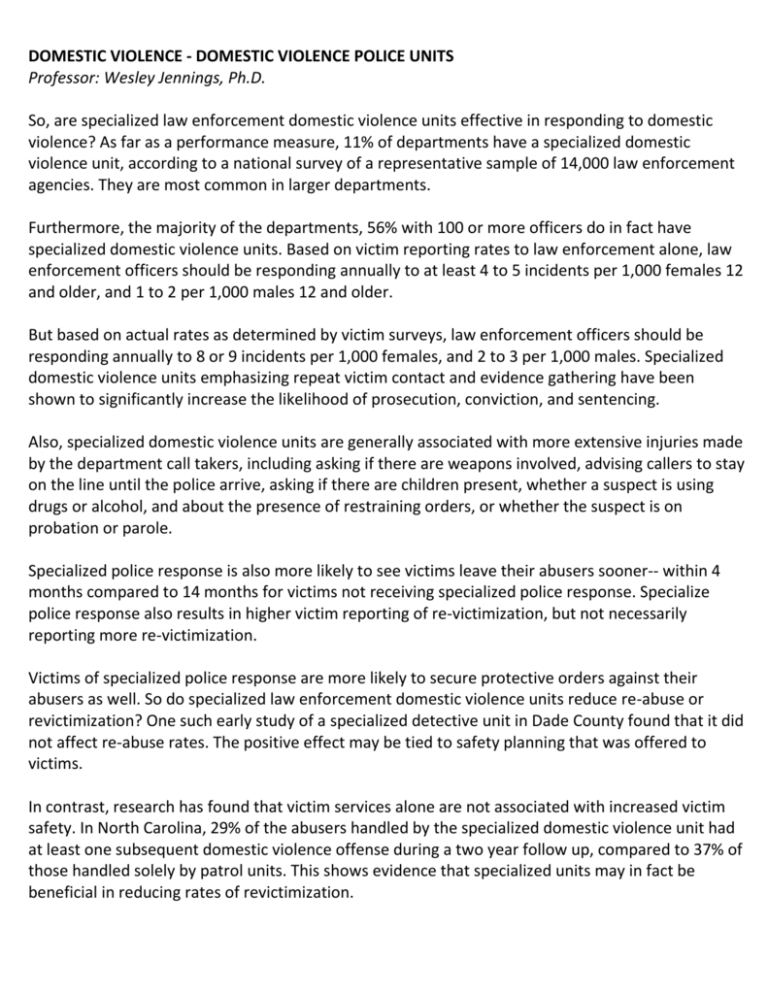
DOMESTIC VIOLENCE - DOMESTIC VIOLENCE POLICE UNITS Professor: Wesley Jennings, Ph.D. So, are specialized law enforcement domestic violence units effective in responding to domestic violence? As far as a performance measure, 11% of departments have a specialized domestic violence unit, according to a national survey of a representative sample of 14,000 law enforcement agencies. They are most common in larger departments. Furthermore, the majority of the departments, 56% with 100 or more officers do in fact have specialized domestic violence units. Based on victim reporting rates to law enforcement alone, law enforcement officers should be responding annually to at least 4 to 5 incidents per 1,000 females 12 and older, and 1 to 2 per 1,000 males 12 and older. But based on actual rates as determined by victim surveys, law enforcement officers should be responding annually to 8 or 9 incidents per 1,000 females, and 2 to 3 per 1,000 males. Specialized domestic violence units emphasizing repeat victim contact and evidence gathering have been shown to significantly increase the likelihood of prosecution, conviction, and sentencing. Also, specialized domestic violence units are generally associated with more extensive injuries made by the department call takers, including asking if there are weapons involved, advising callers to stay on the line until the police arrive, asking if there are children present, whether a suspect is using drugs or alcohol, and about the presence of restraining orders, or whether the suspect is on probation or parole. Specialized police response is also more likely to see victims leave their abusers sooner-- within 4 months compared to 14 months for victims not receiving specialized police response. Specialize police response also results in higher victim reporting of re-victimization, but not necessarily reporting more re-victimization. Victims of specialized police response are more likely to secure protective orders against their abusers as well. So do specialized law enforcement domestic violence units reduce re-abuse or revictimization? One such early study of a specialized detective unit in Dade County found that it did not affect re-abuse rates. The positive effect may be tied to safety planning that was offered to victims. In contrast, research has found that victim services alone are not associated with increased victim safety. In North Carolina, 29% of the abusers handled by the specialized domestic violence unit had at least one subsequent domestic violence offense during a two year follow up, compared to 37% of those handled solely by patrol units. This shows evidence that specialized units may in fact be beneficial in reducing rates of revictimization. Victim satisfaction with the criminal justice system is not associated with whether the victim received advocacy, per se, but rather with concrete law enforcement activities such as the issuance of a warrant against absent users, or assistance in obtaining protective orders. Similarly, a National Violence Against Women Survey found that stalking victims whose stalkers were arrested were significantly more likely to be satisfied with the police response compared to those where no arrest was made. 76% were satisfied compared to 42% in these cases. In general, research that victim dissatisfaction may focus on four major themes-- one, adverse personal outcomes, meaning victim arrested, child collection agency called. Two, the police, quote, made assumptions or did not listen to them, end quote. Three, the police took sides against her, and four, nothing happened. Absence of a strong court sanction. So, the implications. The single most appreciated service officers can deliver to the greatest number of victims is arresting their abusers. Specialized domestic violence law enforcement units that focus on arrests can enhance the likelihood of successful prosecution and increase victim satisfaction and their safety.

